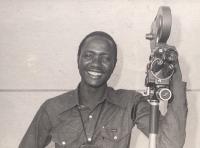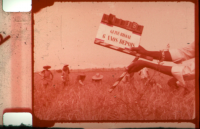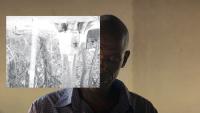Filipa César
Articles tagged with Filipa César
Tag Archive
- 2016
- African Contemporary Art
- Afrique
- Alcindo Monteiro
- Ana Bigotte Vieira
- angolan fashion
- Architecture Biennial
- Archives
- Artificial Intelligence
- artist
- artistic
- audre lorde
- Bahia
- black feminism
- black history
- black is beautiful movement
- Black Lives Matter
- Brit Funk
- buala
- Caldo do Poeira
- carnivalesque protests
- Ceramics
- Chomsky
- collector
- colonial memory
- conclusão
- decolonisation
- decolonising
- descolinizar museus
- diáspora caboverdiana
- djaimilia pereira de almeida
- drawing
- Ephemeral Landscapes
- estudantes
- Europe
- Fernando Pessoa
- Festival Alkantara
- Filipe Mukenga
- fleeing
- forgetting
- Franz Fanon
- Frontiers
- funeral
- Goa
- grime
- humildade
- independencies
- Jacques Rancière
- journalism
- JSF #2
- Leila Kilani
- Luandaino Vieira
- lusitanismo
- Luso-Tropicalism
- luso-tropicologia
- mare nostrum
- Maria Eugénia da Cruz
- microeconomics
- migrações
- multiculturalism
- música
- não dança?
- Neo-Colonization
- nepal
- new negro
- non-ficcional
- Nova Lisboa
- olive
- PCP
- pintura
- primatas
- production
- programation
- projeto
- raça
- racial segregation
- radical music movement
- rap
- Routledge
- S.Tomé
- Sado
- sex discrimination
- Slavery
- SOFIA YALA
- South America
- Spain
- tailors
- tanzania
- theo gould
- theory
- todassabemos
- Toussaint Louverture
- transatlantic
- Tropicália
- uses
- war
- water
- Word
- World Philosophies
- Yonamine
 He tells us about the important and complex mission that Amílcar Cabral delegated to them and what it was like to learn the crushing news of his assassination in the middle of this process. It fell to him as his first job to film Amílcar Cabral at an exhibition on the struggle in Conakry, in 1972, and then the transferring of his body to Bissau, capturing the commotion of the Guineans at the death of their greatest thinker and anti-colonial resistance leader.
He tells us about the important and complex mission that Amílcar Cabral delegated to them and what it was like to learn the crushing news of his assassination in the middle of this process. It fell to him as his first job to film Amílcar Cabral at an exhibition on the struggle in Conakry, in 1972, and then the transferring of his body to Bissau, capturing the commotion of the Guineans at the death of their greatest thinker and anti-colonial resistance leader.  This article reads Amílcar Cabral’s much under-studied early soil science as a body of work not dissociable from his project of liberation struggle against Portuguese colonialism in Guinea-Bissau and Cape Verde. Drawing on research situated within an artistic practice, the article explores the definitions of soil and erosion that Cabral developed as an agronomist, as well as his reports on colonial land exploitation and analysis of the trade economy, to unearth his double agency as a state soil scientist and as a ‘seeder’ of African liberation.
This article reads Amílcar Cabral’s much under-studied early soil science as a body of work not dissociable from his project of liberation struggle against Portuguese colonialism in Guinea-Bissau and Cape Verde. Drawing on research situated within an artistic practice, the article explores the definitions of soil and erosion that Cabral developed as an agronomist, as well as his reports on colonial land exploitation and analysis of the trade economy, to unearth his double agency as a state soil scientist and as a ‘seeder’ of African liberation.  The book condenses some important aspects of the project. Its authors are not made explicit, pointing to the collaborative nature of this effort of rescue and rereading. But it also ends up suggesting that this living process of documenting complicates the very notion of authorship as a sovereign gesture with the authority to determine how images are exposed (or concealed), or to guide interpretation and impose meaning.
The book condenses some important aspects of the project. Its authors are not made explicit, pointing to the collaborative nature of this effort of rescue and rereading. But it also ends up suggesting that this living process of documenting complicates the very notion of authorship as a sovereign gesture with the authority to determine how images are exposed (or concealed), or to guide interpretation and impose meaning. 
